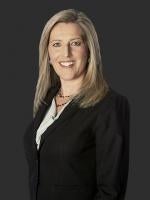On May 31, former Hillary Clinton campaign attorney Michael Sussmann was found not guilty in connection with his provision of information to the Federal Bureau of Investigation. Sussman’s acquittal provides insight into the applicability of a favored prosecution tool, 18 U.S.C. § 1001(a)(2) (“Section 1001”), which prohibits “knowingly and willfully . . . mak[ing] any materially false, fictitious, or fraudulent statement or representation” in a government investigation. The jury rejected the prosecution’s effort to apply Section 1001 to a source voluntarily providing a tip to the FBI, even in a politically charged context.
The indictment charged Sussmann with making a false statement during his Sept. 19, 2016, meeting with then-FBI General Counsel James Baker. Sussmann arranged the meeting to share computer data and analysis he received from cyber experts that pointed to a possible link between the Trump Organization and Russia-based Alfa Bank. The government alleged that Sussmann lied to the FBI when he told Baker he was not providing the data on behalf of any client.
At trial, prosecutors introduced billing records showing that Sussmann billed his work on this issue to the Clinton campaign, as well as evidence that he also worked on behalf of a technology executive. By contrast, Baker testified that Sussmann told the FBI he was not representing a client in connection with the tip. Baker also testified that Sussmann warned Baker that a major newspaper was writing an article about the same data. Baker stated that, had he known Sussmann was working on behalf of the Clinton campaign and that Sussmann provided the information to the New York Times, the FBI would have approached Sussmann’s information differently. Ultimately, the FBI investigated Sussmann’s allegations and did not find any relevant connection between the Trump Organization and Alfa Bank.
In response to the prosecution’s case, Sussmann’s defense team questioned Baker’s memory of the Sept. 19 conversation. They highlighted Baker’s prior statement that Sussmann said he was acting on behalf of cybersecurity clients, and they argued the FBI would have investigated the tip regardless of whether Sussmann disclosed his representation, making the statement immaterial.
Like the parties, the media framed this case in starkly opposing tones. One narrative characterized the computer data as political opposition research that Sussmann tried to disguise as an unbiased tip by concealing his representation of the Clinton campaign in order to gain media and government buy-in, with the intended outcome being a so-called “October surprise” that would damage the Trump campaign on the eve of the election. The other view claimed that this prosecution was animated by Trump’s political spin that the FBI’s investigation into his connection with Russia was a “witch hunt.”
This prosecution was the first trial resulting from the investigation of Special Counsel John Durham, whom Trump appointed in October 2020 to investigate the FBI’s Trump-Russia investigation. Notably, the prosecution was premised not on any alleged fault with the conduct of the FBI agents responsible for the Trump-Russia investigation (the impetus for Durham’s appointment), but rather on alleged misconduct by a source in that investigation. This use of Section 1001 stands in stark contrast with the DOJ’s recent changes to the corporate cooperation policy. At the same time that the DOJ is encouraging full cooperation with investigators through that new policy, it prosecuted a voluntary source for doing precisely what the DOJ says it is trying to encourage, taking issue with how and why he cooperated. Sussman’s swift acquittal can be interpreted as a rebuke of DOJ’s mixed signaling. As the first case to be brought to trial in Durham’s long-running investigation, the jury’s verdict is also likely to generate debate about its value, longevity, and ultimate future.





 />i
/>i


